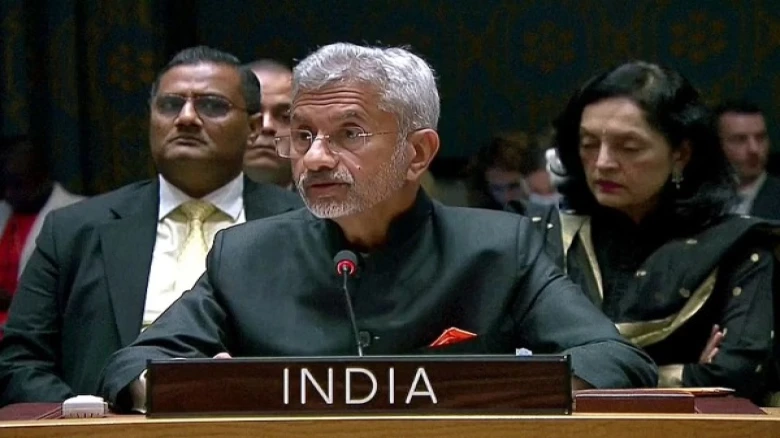The conflict in the Galwan Valley caused India and China's relations to worsen. Since then, both sides have verified one other's positions by adapting and removing troops from the friction point.
Digital Desk: At a BRICS (Brazil, Russia, India, China, and South Africa) ministerial meeting in New York, External Affairs Minister S. Jaishankar met his Chinese counterpart Wang Yi after criticizing China for obstructing the designation of terrorists with ties to Pakistan in the relevant United Nations (UN) sanctions committee.
The two leaders met in person at a BRICS foreign ministers meeting that South Africa sponsored. Sergei Lavrov, the foreign minister of Russia, was also present at the meeting.
In the BRICS meeting, the ministers discussed intra-BRICS initiatives as well as significant global and regional concerns on the United Nations (UN) agenda in the political, security, economic, financial, and sustainable development domains.
The possibility of mutual support for their efforts at the 77th session of the UN General Assembly was also discussed by the ministers (UNGA). They emphasized support for the BRICS nations' sustained collaboration in areas of shared interest, such as through frequent communication between their Permanent Missions to the UN.
Since its founding, the BRICS group, in which South Africa was included in 2011, has advocated for greater representation of the world's main developing economies and has spoken out against what it sees as an excessive dominance of the Western powers.
While tensions between India and China, which in 2020 erupted into a violent border battle, remain unsolved, they are the long-standing source of internal conflict within the BRICS.
Because China broke two decades' worth of agreements with India, some claim the value of the BRICS may be diminished. Not in New York, but in the Galwan Valley, BRICS was placed on life support.
Tanvi Madan, a senior scholar in the Brookings Institution's programme on foreign policy, said: "India's worries about Chinese actions in South Asia, the Indo-Pacific, and in international organisations like the UNSC have contributed to the cold between India and China, in addition to the 2020 crisis. That would inevitably have an impact on associations like BRICS, in which both parties take part."

Leave A Comment